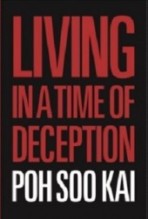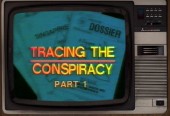Extract from: Body Of Mine, Body of State: ‘Scarred Memoirs’ and the unravelling of Southeast Asian History. Originally published in 台灣人權學刊第一卷第一期 2011 年 12 月 頁 227-260. Please read the full Thesis here: https://fn8org.wordpress.com/2020/05/07/body-of-mine-body-of-state-scarred-memoirs-and-the-unravelling-of-southeast-asian-history/
Kar Yen Leong
PhD Candidate, Department of Southeast Asian Studies,
National University of Singapore
In recent years Singapore has been made to grapple with its history. Given its unique position in Southeast Asia, it has been a receptacle of both Western and Eastern influences. Home to several different ethnic groups, Singapore is a nation in which its history is tied to the Malaysian peninsular and yet its claim to modernity was colonial invention. This is why, the writing of Singapore’s history has often been a long drawn out and complex affair. Since its independence from Malaysia in 1965, the city-state has had to re-invent itself given its vulnerability, its size and limitations. Despite the odds Singapore has grown into a major world player. Its success is largely credited to its first Prime Minister Lee Kuan Yew, who led Singapore into modernity. Therefore Singapore’s modern history has largely been written and shaped by the will of one single man. Up until 1990, Lee’s policies allowed Singapore to flourish as an economic success but at the same time continued with punitive measures. During his tenure, the Singapore government also saw fit to use repressive colonial era laws to arrest and detain individuals in the name of internal security. Nonetheless, many books of ‘revisionist’ histories have been written which attempt to wrest the interpretation of history from Lee’s so-called Singapore story.[16] While several books have attempted to dissect the way in which its history is written, a few more have spoken on the period of political spring during its early years as a post-colonial entity.[17] More interestingly however have been memoirs written by Singapore’s former political prisoners. One such tome is that of lawyer Teo Soh Lung. At the launch of Teo’s Beyond the Blue Gate (2010) Singapore playwright Alfian Sa’at described her incarceration under the detention-without-trial Internal Security Act in the late 1980’s as an ‘open wound’ and a ‘little black hole in history’.[18] Teo was arrested first in May 1987, released 4 months later and then rearrested in April 1988 under a dragnet which saw the incarceration of several figures accused of involvement in a Marxist conspiracy. However, the former detainees denied these allegations stating that they were arrested primarily for their work as advocates and church activist. According to Teo whom was only released June 1990, rather than being a Marxist, she was arrested for getting ‘involved’. She had been active in the Singapore Bar’s effort at law reform and was also a volunteer in a centre catering to Singapore’s working classes. Because of her involvement, Teo, claims, she too, had to be ‘exiled’, much like Pramoedya’s in Buru. According to Teo, “…the word ‘involved’ had a sinister connotation for the Internal Security Department.[19] To be involved is not to be involved in criminal activities or subversive activities but simple activities which may embarrass the government.” (Teo, 2010: 270) According to Teo, she was made to undergo solitary confinement, mental torture, physical abuse and denial of family visits in order to reduce her back into the state of a ‘normal’ person or rather a person whom would learn not to get involve. Not allowed to be ‘involved’, and as an individual whom in the past engaged with people on a daily basis, Teo was slowly made to turn ‘inward’. Describing her life as the sole female inmate in the women’s wing, Teo states that, “…it was during detention that I became acutely aware of the lives of little insects and living things.” (Teo, 2010: 282) She then recounts an episode where she attempted to revive a dying cricket which had been bitten to death by a swarm of angry ants. “When my cricket finally expired, I sobbed my heart out…for me, the death of any insect with which a kind of friendship had been established was a big matter.” Given that Teo had been ‘contained’ and kept from the rest of society, her universe had been miniaturized, as she searched for contact and comfort from the living things which she shared her cell with. She had also taken to keeping a toad which had accidentally leapt into her cell, as a pet. Teo states that, “…it was my habit to walk round and round my cell after my lunch or dinner. I would look for my little toad which I called Toddy, asked it a number of questions and sang a song…”(Teo, 2010: 290) Teo’s initial period of detention also brought to bear some of the bodily pleasures that many of us take for granted. The simple of act of relieving oneself, considered a mundane and inconsequential act, become central when one is placed in such conditions. Even being allowed to sleep in the dark, Teo claims is a source of great pleasure in a cell lit regardless of day or night. Solitary confinement and the threat of indefinite detention bring to bear on one’s mind unspeakable and unbearable suffering. Such conditions seek to reduce and to strip away the layers of ‘civilisation’ which we have placed over ourselves as social beings. Even underwear, which many of us pay scant attention to becomes a bastion of dignity when Teo was made to undress in the presence of prison guards.
As such, as the state develops these ‘technologies’ to chip away at one’s being, reducing one’s world view and perspective to the most minute and the basest. Insects and frogs, in the absence of human company, become playmates. Urination, sleep and defecation become all important. From there the human being becomes a mere shadow of itself, vulnerable to manipulation and ultimately, control. Thus, with the more ‘active’ individuals in society insulated from the rest of society, the larger society is then able to continue with its activities the security agencies continue to maintain structure of the larger society.
Footnotes
[16]For more information please refer to Hong Lysa’s and Huang Jianli’s Scripting of a National History: Singapore’s Past and its Pasts, Singapore: NUS Press 2008. Also please The Makers and Keepers of Singapore History eds. Loh Kah Seng & Liew Kai Khiun, Singapore: Ethos Books, 2010.
[17]Please see Paths Not Taken: Political Pluralism in Post-War Singapore eds.
Michael D. Barr and Carl Trocki, Singapore: NUS Press, 2008
[18]Andrew Loh’s “An open wound” in The Online Citizen, June 28 2010, http://theonlinecitizen.com/2010/06/an-open-wound. (last aaccessed September 1 2011)
[19]The Internal Security Department within Singapore’s Ministry of Home Affairs is responsible the maintenance of domestic security. It was part of the Malaysia police’ Special Branch and after separation was made a separate division by itself.




